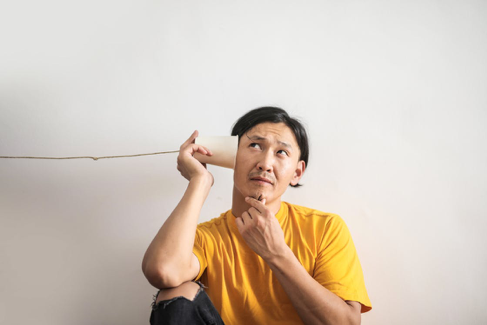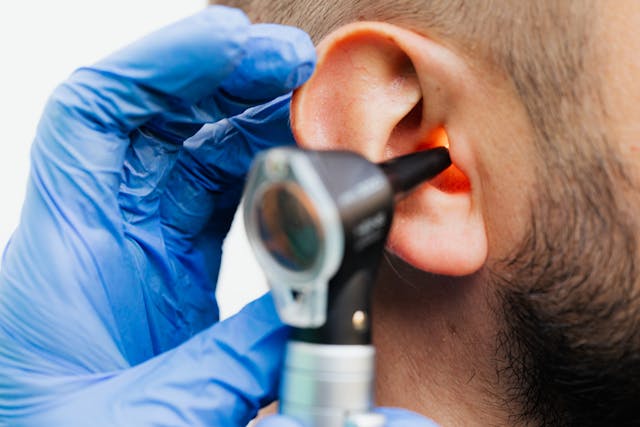What are the more common hearing problems and treatments? Hearing loss is common among older adults. In fact, it is natural for you to experience hearing problems as you grow older. Although many people develop these issues with age, hearing loss can very well affect people of all ages and medical backgrounds. For example, some infants are born with congenital hearing loss. Other times, hearing problems can be a result of certain diseases affecting the ears.

In any case, impaired sense of hearing can have adverse effects on your quality of life. It makes it hard for patients to hear sounds and participate in conversations. According to the reports, every 1 in 10 people suffers from some extent of hearing loss. If you experience a problem in hearing, an ENT specialist might be able to determine and address your issue.
Types of Hearing Problems and Their Treatments
There are three basic types of hearing problems that affect people of all ages. You may experience any of these in one (unilateral hearing loss) or two (bilateral hearing loss) ears. This and the category of your condition entirely depend on the cause and location of the damage.
Sensorineural Hearing Loss
The most common type of hearing problem is called sensorineural hearing loss. There may be several reasons why someone may experience this condition. Common reasons include exposure to loud noise, disease, injury, inherited condition, aging, etc.
A patient experiences sensorineural hearing loss when the hearing nerve or inner ear suffers from damage. Generally, this is also when the hair cells within your cochlea are damaged.
Treatment:
It is quite impossible to treat sensorineural hearing loss medically or surgically. However, different treatment options and methods improve the symptoms for many people. In fact, hearing aids have proved beneficial in some cases as well.
Corticosteroids can improve symptoms of sensorineural hearing loss (SSHL). They can reduce swelling of cochlea cells as well as inflammations caused due to loud noise exposure.
Conductive Hearing Loss
Conductive hearing loss is another type of hearing problem that can occur in people of all ages. Typically, this health condition relating to the ears is most common in children who have suffered from recurrent ear infections.
When a child experiences infections too frequently or inserts foreign objects in the ear canal, they are likely to develop conductive hearing loss over time. The loss mainly occurs in the outer and middle layers of the ear, inhibiting sound waves from reaching the inner ear.
Treatment:
It is possible to reverse conductive hearing loss through surgical or medical intervention. Surgery may be beneficial in conditions like:
- Congenital absence of ear canal
- Closed ear canal
- Malformation
- Dysfunction of structures in the middle ear
- Otosclerosis
Other times, amplification with the help of a surgically implanted osseointegrated device and bone-conduction hearing aid also helps. Depending on the severity of damage and condition of your hearing nerve, your ENT might also recommend a conventional hearing aid.

Mixed Hearing Loss
Mixed hearing loss refers to a hearing problem that is caused due to a combination of both sensorineural and conductive damage. For example, some people have damaged outer and middle ear as well as the damaged cochlea and auditory nerve.
Most of the time, mixed hearing loss is a result of inherited conditions, ear infections, or a head injury. On the other hand, some patients develop conductive components as an addition to their sensorineural hearing loss.
Treatment:
According to audiologists, it is better to take care of and treat the conductive component first. This is because many patients tend to become better candidates for hearing aids this way. For example, flattening the audiogram in addition to the conductive component presents a high-frequency loss in many cases.
Common Hearing Problems and Treatments: Conclusion
While it is hard to reverse all hearing problems, it is possible to reduce the severity of symptoms through medical or surgical intervention. If you’re experiencing any sort of hearing problem, seeing an ENT specialist in time can help.
Dr. Michael Burnett can diagnose your condition and recommend the best treatment option. Visit us today or give us a call at 212-867-4813.
Contact









 Hearing loss affects people of all ages, and regular hearing checkups are essential for maintaining good hearing health. While many people only think of getting their hearing checked when they notice a problem, regular checkups can help detect problems early, leading to better outcomes and improved quality of life. In this article, we will discuss the importance of regular hearing checkups for all ages.
Hearing loss affects people of all ages, and regular hearing checkups are essential for maintaining good hearing health. While many people only think of getting their hearing checked when they notice a problem, regular checkups can help detect problems early, leading to better outcomes and improved quality of life. In this article, we will discuss the importance of regular hearing checkups for all ages.

